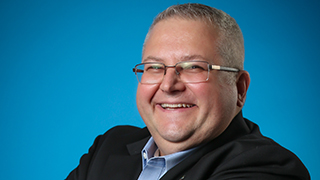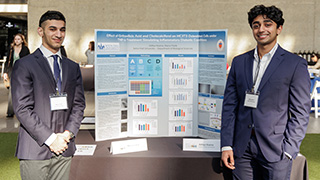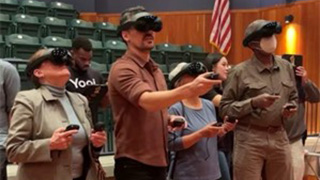Expert Advice from Dr. Ramon Solhkhah on Managing Stress in the Time of Coronavirus
Thursday, March 26, 2020

Solhkhah, who also serves as chairman of Jersey Shore University Medical Center's Department of Psychiatry, explained that today's conversations should not revolve around social distancing but rather on physical distancing in an interview with Tom Bergeron, editor and chief content officer of ROI-NJ.
"We need physical distancing in order to maintain the safety and the infection piece here. But we need social connectedness more than ever," he explained.
In terms of the impact on this pandemic on mental health, many people are feeling anxiety, stress, isolation and a lack of control. Solhkhah urges community connectedness, even if that means digitally and virtually. He also shares that keeping to a normal routine is important, taking fresh air breaks and sitting in the backyard for a few minutes.
"That can be waking and sleeping at the same time as we're used to. If you take time for exercise, take time for exercise," he said.
Instead of getting caught up in thinking about the future, try to focus on being in the moment, and focus on what you do have and can control. That helps to mitigate stress.
In terms of managing work remotely and digitally in preparation for a situation that could last for a while, Solhkhah advises people to pace themselves.
At such stressful times, it is important to recognize the risks around mental health issues, physical issues and for those with a history of alcohol and substance abuse.
"People need to avoid negative coping strategies," he shares.
Read the entire ROI-NJ interview here »
Students who are struggling with non-physical issues related to COVID-19 are encouraged to reach out to CAPS counselors. The University offers an Employee Assistance Program (EAP) which provides counseling services to employees. For more tips and resources, visit Counseling and Psychological Services.
Campus Ministry shares assistance and resources here »
Categories: Education, Health and Medicine





